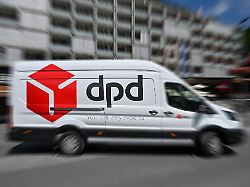Christmas time is shopping time
The parcel industry expects an increase in orders
November 3rd, 2023, 1:47 p.m
Listen to article
This audio version was artificially generated. More info | Send feedback
Despite the difficult economic situation, the parcel industry can look forward to a slight increase in online orders from consumers this year. This is thanks to the positive purchasing behavior caused by the tariff increases and due to discount campaigns around Black Friday.
According to one estimate, people in Germany will order slightly more gifts and other goods online during the Christmas season than in the previous year. The parcel industry is expecting a slight increase in the number of deliveries to private households this year. According to an analysis for the Federal Association of Parcel and Express Logistics (BIEK), 400 million shipments are expected in November and December. That would be slightly more than the 395 million parcels and parcels in the same period last year. This would increase sales by 5 million euros compared to the previous year.
During the Christmas season, online retailers are particularly keen to attract customers with discount campaigns such as Black Friday and people receive a correspondingly large number of packages. The parcel companies already know relatively precisely about the shipment volumes because they have received feedback from their retail customers.
According to the association, on an average delivery day around 14.5 million shipments and at peak times up to 20 million shipments are transported on a single day in the parcel service providers’ networks. According to the association, the companies currently employ around 258,000 people. According to the analysis, the industry will need around 15,000 additional workers and up to 10,000 additional vehicles for the Christmas season.
Expected total sales similar to last year
The companies DPD, GLS, Go, Hermes and UPS are represented in BIEK. However, the weak economy and households’ reluctance to consume were also reflected in parcel volumes in the first half of the year. From January to June, the five companies transported 1.5 percent less. Parcel shipments fell by almost one percent, express and courier shipments by around six percent.
For the year as a whole, the five logistics companies expect 4.1 billion shipments, which would be around the same as in 2022. According to the analysis, sales are likely to be 26.3 billion euros.
At the end of 2022, the volume of parcels between retailers and private customers had collapsed by around ten percent (45 million shipments) as the consequences of the Ukraine war, including inflation and energy uncertainty, had dampened consumer sentiment. This year, consumers’ state of shock has been lifted, said a BIEK spokeswoman, referring to the slightly increasing numbers.
Tariff increases have a positive influence on purchasing behavior
In addition, tariff increases have a positive effect on people’s purchasing behavior. However, the weakening economy is noticeable in the volumes. If you also take into account the courier, express and parcel shipments from companies to companies and the niche of shipments from consumers to consumers, according to the industry estimate, the volume falls by 10 million to 715 million. The BIEK justified this with the difficult economic situation, which means that companies are sending fewer documents, spare parts and other goods to each other.
Driven by booming online trade, the parcel industry has experienced rapid growth, which accelerated during Corona times. According to BIEK, around 355 million parcels were delivered to consumers in Germany during the 2019 Christmas season – before the pandemic. At the end of 2021, the previous high of 440 million was reached.
